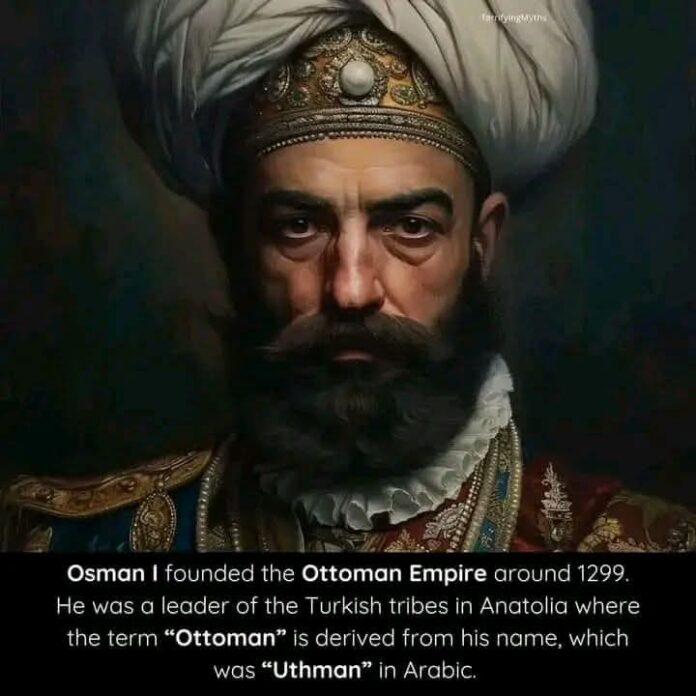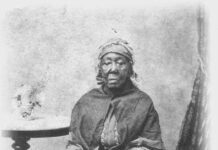Osman Gazi: The Founder Of Ottoman Empire, one of the Greatest Empires in Islam and world
Osman Gazi (c. 1258 – 1323/1324 or 1326) was the founder of the Ottoman Empire and the leader of the Kayı tribe of the Oghuz Turks. He established a small principality in northwestern Anatolia, which evolved into one of the most powerful and long-lasting empires in world history. The empire he founded would endure for over six centuries, eventually spanning large parts of Europe, Asia, and Africa.
Osman was born around 1258 in the town of Söğüt, in present-day Bilecik Province, Turkey. He was the son of Ertuğrul Gazi, the leader of the Kayı tribe, which had settled in the region under the protection of the Seljuk Sultanate of Rum. His mother is traditionally believed to be Halime Hatun, although some historical sources offer different accounts.
Following the death of his father around 1281, Osman became the chief (bey) of the Kayı tribe. At the time, Anatolia was in turmoil due to the decline of the Seljuk Sultanate and the Mongol invasions. Many small Turkish principalities, known as beyliks, emerged in the region. Osman’s principality, located on the frontier of the weakening Byzantine Empire, quickly grew in power due to his military success, political skill, and religious devotion.
READ ALSO: How captured Igbo people chose mass suicide by drowning instead of submitting to slavery
In 1299, Osman is believed to have declared independence from the Seljuks, marking the traditional date for the founding of the Ottoman state. This moment is widely regarded as the beginning of the Ottoman Empire. Osman expanded his territory at the expense of the Byzantines, leading successful campaigns that brought key cities such as Yenişehir and İnegöl under his control. One of his most significant victories was the Battle of Baphaeon in 1302, where his forces defeated a Byzantine army near Nicaea (İznik).
A popular legend surrounding Osman’s life is the “Dream of Osman” (Osman’ın Rüyası), which he reportedly had while staying in the home of the Sufi mystic Sheikh Edebali. In the dream, a tree emerged from Osman’s chest and cast its shadow over the world. Edebali interpreted this as a divine sign that Osman would found a great empire. Osman later married Edebali’s daughter, Bala Hatun, strengthening his spiritual and political ties.
READ ALSO: Hetty Green: Wonders of world’s most stingy person
The siege of Bursa, which would become the first capital of the Ottoman Empire, began under Osman’s leadership. However, he did not live to see its conquest. His son, Orhan Gazi, captured the city shortly after Osman’s death. Osman likely died around 1323–1326, and he was buried in Bursa, where his tomb remains a revered historical site.
Osman’s legacy is immense. The empire that bore his name, “Osmanlı” in Turkish, became a dominant global power and a center of Islamic civilization. He is remembered as a wise and devout leader, a skilled warrior, and the architect of an enduring dynasty. His descendants ruled an empire that stretched from the Balkans to Arabia, and from North Africa to Eastern Europe.
READ ALSO: Why the elephant is transported with tiny chicks inside cage
His family included his father, Ertuğrul Gazi; his wife, Bala Hatun; and his sons, including Orhan Gazi, who succeeded him, and Alaeddin Pasha, who served as a key advisor and vizier.
Osman’s life and achievements have been depicted in modern popular culture, including in Turkish television dramas such as Kuruluş: Osman, which dramatizes his role in founding the Ottoman Empire. His legacy continues to be celebrated in Turkey and across the broader Muslim world as the originator of a powerful and transformative imperial tradition.
Rabee’u Garba Ruwan Godia
Follow the Neptune Prime channel on WhatsApp:
Do you have breaking news, interview request, opinion, suggestion, or want your event covered? Email us at neptuneprime2233@gmail.com





